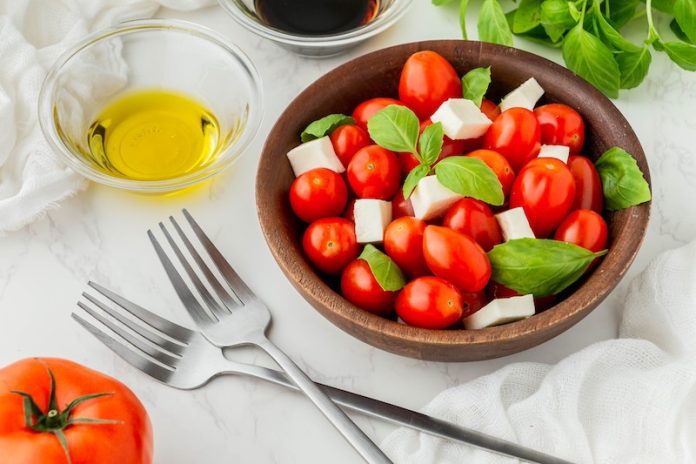
Researchers from La Trobe University conducted a study published in Nutrients, exploring the impact of high polyphenol extra virgin olive oil on blood pressure in healthy adults.
Led by Katerina Sarapis and her team, the study investigates the potential health benefits of extra virgin olive oil, which is a key component of the Mediterranean diet.
Understanding Extra Virgin Olive Oil
Extra virgin olive oil is a crucial component of the Mediterranean diet, commonly produced in countries like Spain, Italy, and Greece.
Unlike regular olive oil, which is refined and loses important nutrients and antioxidants, extra virgin olive oil is extracted naturally to retain all the beneficial components of the olive fruit.
It contains over 30 phenolic compounds, which are powerful antioxidants that protect the body against free radicals.
Role of Polyphenols
Polyphenols are micronutrients found naturally in plants. They are present in various supplements and can be obtained from foods like fruits, vegetables, teas, and spices.
Extra virgin olive oil contains at least 30 different phenolic compounds, including oleacein, tyrosol, and hydroxytyrosol. High phenolic olive oil is defined as having at least 250 mg of polyphenols per kilogram of oil.
The Study and Findings
The researchers conducted a study to examine the effect of high polyphenol extra virgin olive oil compared to low polyphenol olive oil on blood pressure and arterial stiffness in healthy adults.
They selected 50 participants who consumed either 60 mL/day of high polyphenol olive oil (360 mg/kg polyphenols) or low polyphenol olive oil (86 mg/kg polyphenols) for three weeks.
After a two-week washout period, the participants switched to consuming the alternate oil.
Measurements of body shape, size, peripheral blood pressure, central blood pressure, and arterial stiffness were taken before and after the study.
Blood Pressure Reduction
The study revealed significant reductions in peripheral and central systolic blood pressure by 2.5 mmHg and 2.7 mmHg, respectively, in the high polyphenol olive oil group.
However, neither olive oil consumption had an impact on diastolic blood pressure or measures of arterial stiffness.
Interpreting Blood Pressure Measurements
Blood pressure is measured using two numbers: systolic blood pressure and diastolic blood pressure.
Systolic blood pressure represents the pressure in the arteries when the heart beats, while diastolic blood pressure represents the pressure when the heart rests between beats.
Conclusion and Future Studies
The researchers concluded that the reductions in systolic blood pressure after consuming high polyphenol olive oil provide evidence of its potential benefits in preventing heart disease in healthy individuals.
They suggest that longer studies with higher doses of polyphenols in olive oil may provide further insights into the potential benefits on diastolic blood pressure and arterial stiffness.
Incorporating high polyphenol extra virgin olive oil into the diet may offer a natural and accessible way to support cardiovascular health.
However, additional research is needed to fully understand the extent of its benefits and its impact on other health markers.
If you care about blood pressure, please read studies about unhealthy habits that could increase high blood pressure risk, and eating eggs in a healthy diet may reduce risks of diabetes, and high blood pressure.
For more information about blood pressure, please see recent studies that early time-restricted eating could help improve blood pressure, and results showing DASH diet is good for your blood pressure, and vegetable diet may reduce heart disease risk.
Copyright © 2023 Scientific Diet. All rights reserved.





